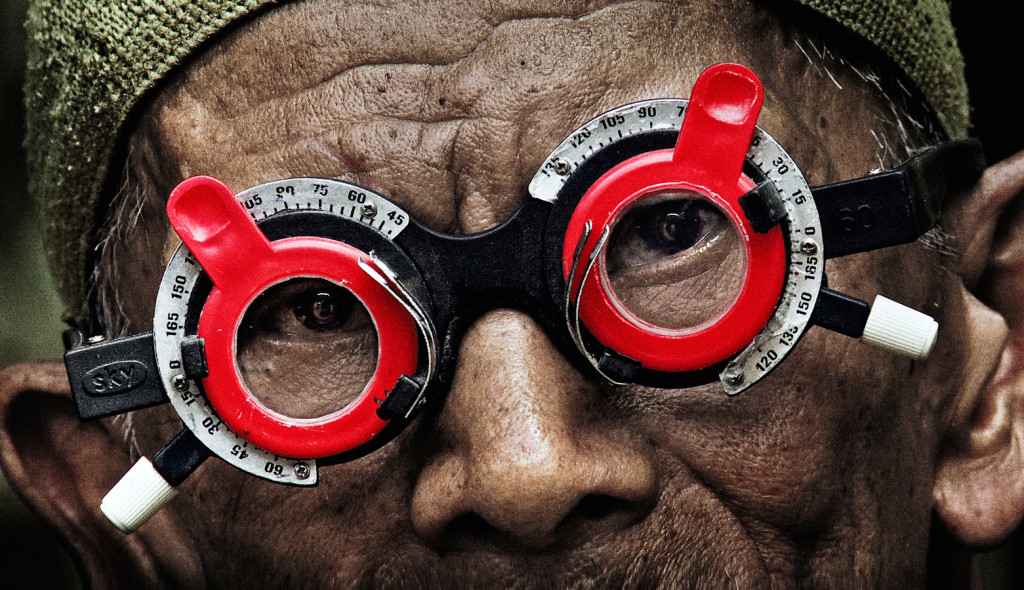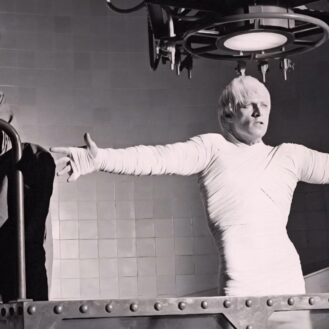By: Trevor Jeffery
There are so many documentaries covering atrocities. It’s easy, or necessary, to forget that sometimes; there is so much horror that to consider it all – all the time – isn’t healthy. The Look of Silence isn’t so much about the importance of its subject, or about squeezing emotions from an increasingly apathetic audience. It’s about humanity and acts of evil, and how people will twist their perspective to retain the last bits of humanity they have left.
Following up director Joshua Oppenheimer’s 2012’s The Act of Killing, about the purge of communism in 1965 Indonesia, The Look of Silence focuses on a man, Adi, an optometrist who seeks answers from his patients: specifically, about how they feel about killing his brother, and one million others, in 1965.
Adi sits in a room, watching the man who killed his brother on a television, describing the act in detail, and laughing. Adi visits a woman, old enough to remember the purge, and asks her about it. She flips back and forth with inconsistent stories: it never happened; they deserved it; it wasn’t a big deal. To him and his family, and millions of others, it is a big deal. But the perpetrators are heroes: it’s taught in schools that the communists were cruel, and exterminating them was a social justice. Adi confronts the men in charge, giving the orders, doing the killing, and even his uncle, who was a guard at the prison where they kept his brother right up until the night they killed him. Adi’s uncle excused himself, saying he was doing what he was told, following orders, and if he spoke out they would have killed him too.
The Look of Silence isn’t about heroes and villains. Adi doesn’t want revenge, he wants reconciliation: the importance lies in recognition that the murders weren’t just. Oppenheimer surpasses the typical facts and numbers, and humanizes and contextualizes the purge for the viewer in a way that a person can grasp and relate to. The doctor-patient relationship between Adi and the men who committed and ordered the murders levels the imbalance: Adi has power in that situation, but these men hold the power of having forever affected his and his family’s life.
Importance aside, The Look of Silence is enrapturing. The drama and suspense between Adi and the elderly men who ordered and carried out a slaughter of millions demands all your focus; Adi is in a situation where you don’t know if he’s going to reach out and strangle these men, or burst into tears and hug them, because he can justifiably do both. Stunningly beautiful could describe Indonesia through Oppenheimer’s lens, even with the knowing that the focus is formerly blood-soaked ground.
Kudos to Joshua Oppenheimer. Never has there been a documentarian with such a perfect combination of technical skill, understanding of storytelling and a mastery of pathos.
Do You Tweet? Follow:
Trevor Jeffery: @TrevorSJeffery





Be the first to comment